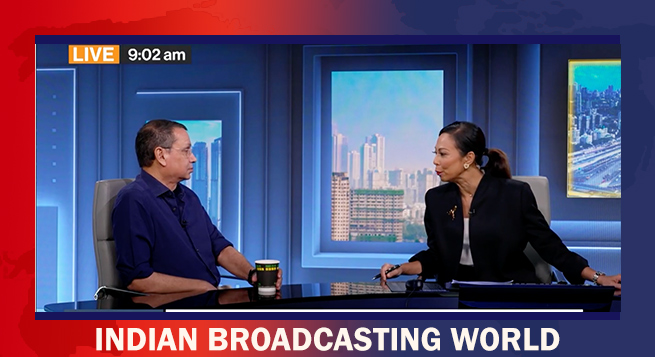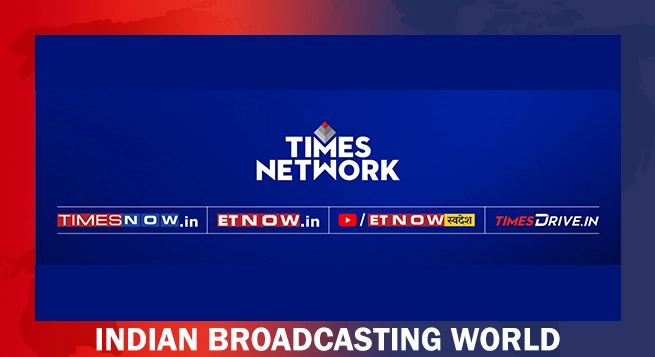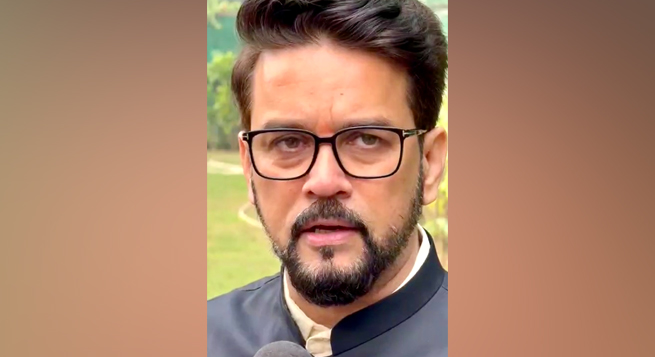In a bid to curb film piracy, the Indian government yesterday said it has appointed nodal officers who have been empowered to issue directions to take down pirated content from digital platforms.
This move by the Ministry of Information and Broadcasting has provided an institutional mechanism to take action against film piracy, which is estimated to cause the entertainment industry losses to the tune of Rs 20,000 crore every year.
“We have fulfilled a big demand of the industry,” Information and Broadcasting Minister Anurag Thakur told to PTI.
He said the government has appointed 12 nodal officers in the Ministry of Information and Broadcasting and the Central Bureau of Film Certification (CBFC) with whom complaints related to film piracy can be lodged and action will be taken within 48 hours.
“Piracy is a big menace not only for the film industry, but for the entire world. Now, action against it is just a complaint away,” Thakur said.
Officials said any original copyright holder or any person authorised by them for the purpose can file a complaint with the nodal officers to take down pirated content from YouTube, Telegram channels, websites or other online platforms.
The copyright holder will have to submit proof of ownership such as the certificate issued by the CBFC with the complaint for speedier action.
Briefing reporters about the move, MIB Secretary Apurva Chandra said if a complaint is raised by a person who does not hold the copyright or is not authorised by the copyright holder, the nodal officer can hold hearings to decide the genuineness of the complaint before issuing directions to take down the content.
Parliament passed the Cinematograph (Amendment) Bill earlier this year to address issues relating to film certification, unauthorised recording and exhibition of films and film piracy by transmission of unauthorised copies on the internet and impose strict penalties for piracy.
Thakur said the Cinematograph Act, 2023 has provisions to impose stiff penalties on those indulging in film piracy. The penalties include a minimum jail term of three months and fine of Rs 3 lakh and fine up to five percent of the audited gross production cost.
The maximum jail term could extend up to three years and fine could be up to five per cent of the audited gross production cost of the film.
“We had promised the industry that they should leave no stone unturned in making India a soft power, make good films and the government will take strict action against those indulging in film piracy,” Thakur added.
Meanwhile, an official government statement added that the Cinematograph Act has been amended after 40 years to incorporate provisions against film piracy, including digital piracy after the last significant amendments were made in 1984.
 SonyLIV drops ‘Black, White & Gray-Love Kills’ trailer
SonyLIV drops ‘Black, White & Gray-Love Kills’ trailer  Rahul Sinha takes charge of Zee News’ DNA
Rahul Sinha takes charge of Zee News’ DNA  JioStar vice-chair Uday Shankar on surge in streaming subs, trade tariff challenges
JioStar vice-chair Uday Shankar on surge in streaming subs, trade tariff challenges  ‘Fellow Travelers’ to stream on Prime Video India from April 17
‘Fellow Travelers’ to stream on Prime Video India from April 17  Times Network emerges as digital news powerhouse with 107 mn monthly users
Times Network emerges as digital news powerhouse with 107 mn monthly users  HBO unveils key cast for upcoming ‘Harry Potter’ TV series
HBO unveils key cast for upcoming ‘Harry Potter’ TV series  NDTV brings new ‘Unplan Life’ podcast
NDTV brings new ‘Unplan Life’ podcast  Anna Kendrick, Blake Lively reunite for twisted wedding thriller
Anna Kendrick, Blake Lively reunite for twisted wedding thriller 








